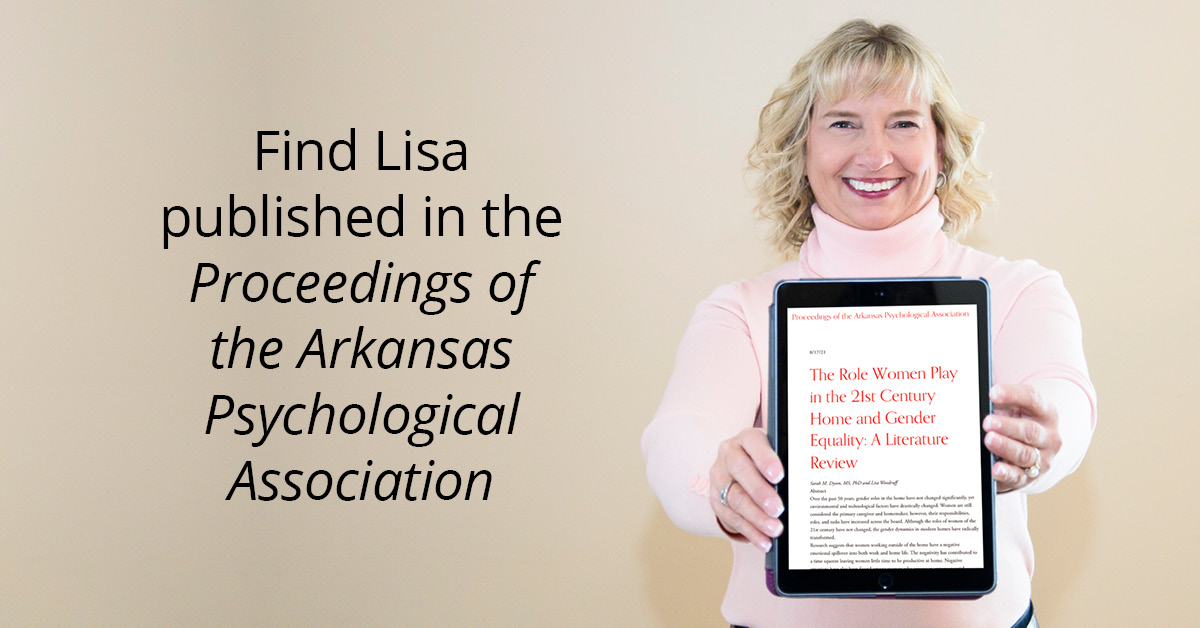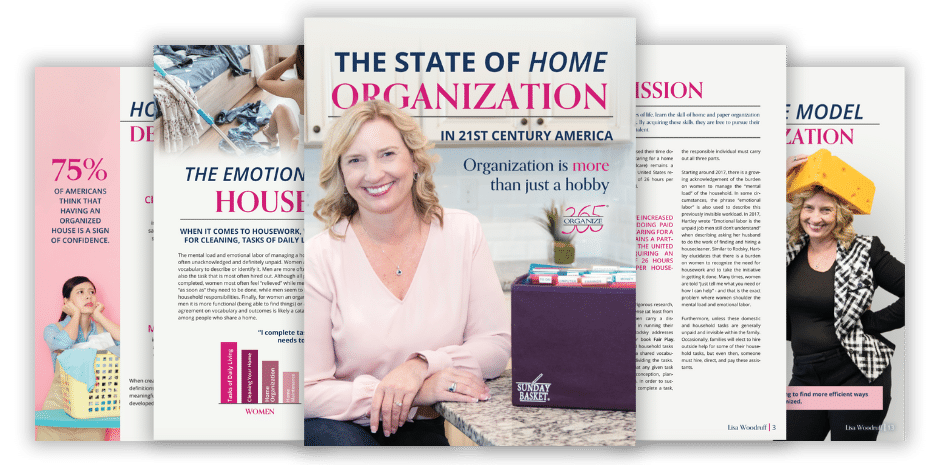
Research at Organize 365
To cite this research, please use the following format: Woodruff, Lisa K, Title of Magazine, Organize 365®, 2021 from https://organize365.com/research

Organize 365® Research Podcast Playlist
Research Detail
Organize 365® Research Study #1
Spring 2021
The Role Women Play in the 21st Century Home and Gender Equality A State of the Art Literature Review
Sarah M. Dyson, MS, PhD, and Lisa Woodruff
Organize 365® has recognized an ongoing situation. Women in the 21st century home are not able to live life to their full potential. Organize 365®, like many women worldwide, believes that every woman has a significant purpose, be it the very best organizer or a fortune 500 entrepreneur. Women of the 21st century struggle to reach and maintain their goals on a daily or weekly basis. Organize 365® has a hypothesis that this may be due to a lack of organization in the home.
Organization is a teachable and learnable skill; therefore, anyone can cultivate their organization talents to suit their needs. Thus Organize 365® will be taking a deep dive into the empirical research to understand precisely what has happened to women in the home over the past 50 years. We will also collect current data to understand what is currently happening among women in 21st-century households. We will seek to answer two questions:
- Is there a disproportionate amount of time spent on housework between gender?
- Is there a significant difference in the emotional impact of organizing tasks of daily living between genders?
Organize 365® Research Study #2
Summer 2021
Organize 365® has recognized an ongoing situation. Women in the 21st century home are not able to live life to their full potential. Organize 365®, like many women worldwide, believes that every woman has a significant purpose, be it the very best organizer or a fortune 500 entrepreneur. Women of the 21st century struggle to reach and maintain their goals on a daily or weekly basis. Organize 365® has a hypothesis that this may be due to a lack of organization in the home.
Organization is a teachable and learnable skill; therefore, anyone can cultivate their organization talents to suit their needs. Thus Organize 365® will be taking a deep dive into the empirical research to understand precisely what has happened to women in the home over the past 50 years. We will also collect current data to understand what is currently happening among women in 21st-century households. We will seek to answer two questions:
- Is there a disproportionate amount of time spent on housework between gender?
- Is there a significant difference in the emotional impact of organizing tasks of daily living between genders?
Organize 365® Research Study #3
Winter 2021
We would like to better understand the effects of cognitive overload, time management, motivation, and how these impact one’s ability to create organization systems within their homes. Due to cognitive overload, lack of focus, increased anxiety and depression have been correlated to completing tasks and implementing home organization. Additionally, time management and motivation have been correlated with constructive use of time and the ability to prioritize important projects. Results of the proposed study could provide recommendations for overcoming each of these factors and increasing the ability to implement organizational systems within one’s home. We will seek to answer two questions:- How does cognitive overload affect the creation of personal, family, storage, and paper management systems?
- How do time management and motivation affect the creation of personal, family, storage, and paper management systems?

